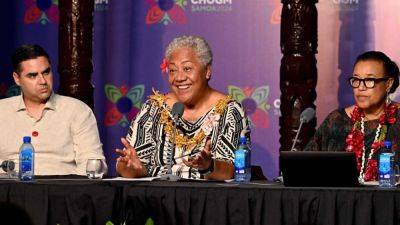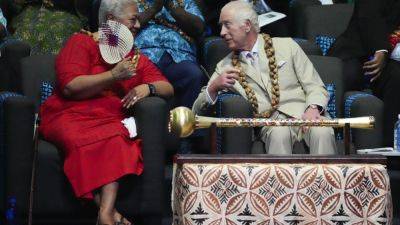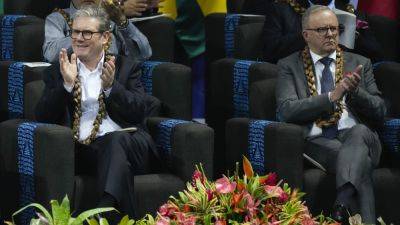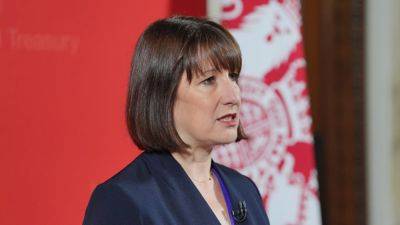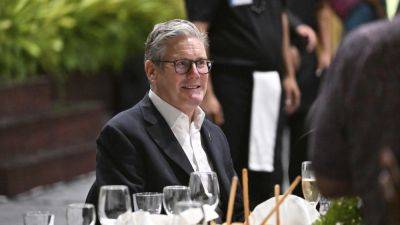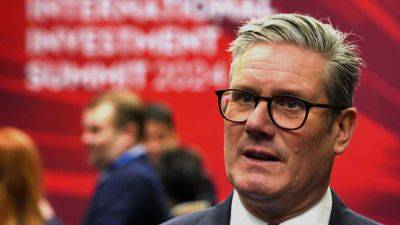Calls for reparations for Britain’s slave trade are rooted in dark legacy
LONDON (AP) — A debate about reparations for Britain’s role in the slave trade overshadowed a summit in Samoa of the Commonwealth, many of whose member nations were once British colonies.
Britain insists it will not pay to make amends for the historic wrong, but both King Charles III and Prime Minister Keir Starmer addressed the issue indirectly at the Commonwealth Heads of Government Meeting.
“None of us can change the past but we can commit with all our hearts to learning its lessons and to finding creative ways to right the inequalities that endure,” Charles said.
The legacy of slavery is interwoven in some of Britain’s richest and most revered institutions — from the Church of England to the insurance giant Lloyd’s of London to the monarchy itself.
“Britain benefited from transatlantic enslavement,” said Olivette Otele, professor of the legacies and memory of slavery at the School of African and Oriental Studies at University of London. “The money and the money trail is there to prove it. So we need to have these conversations much more openly.”
It’s a discussion that has been going on for a long time.
Charles, when he was Prince of Wales, spoke of the “appalling atrocity of slavery, which forever stains our history” during a visit to Barbados in 2021. At the Commonwealth summit two years ago in Rwanda, he spoke of his sorrow over slavery and its legacy for Indigenous communities and said it was a ”conversation whose time has come.”
Here’s a look at why the issue is getting attention now.
What was Britain’s role in the slave trade?
Britain got involved in the slave trade in the mid-1500s, following Portugal and Spain.
John Hawkins, one of the most notable sailors and naval commanders of the 16th century, is considered


